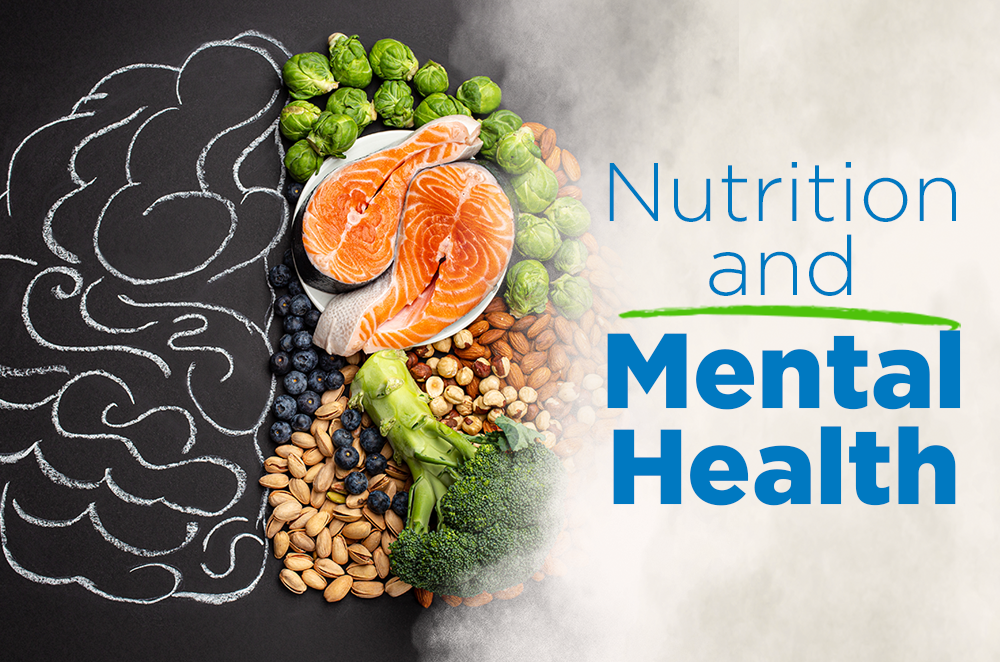
Therapr Team
Mental health and nutrition are deeply connected. While therapy and medication are vital tools for managing conditions like depression and anxiety, what you put on your plate can also have a powerful impact on your emotional well-being. Emerging research shows that food affects the brain’s chemistry, inflammation levels, and even the gut microbiome—all of which play key roles in mental health. So, how can you eat for a better mood? Let’s break it down.
The gut is often referred to as the “second brain” because of its complex network of nerves and its role in producing neurotransmitters like serotonin and dopamine. In fact, over 90% of serotonin—the “feel-good” hormone—is produced in the gut.
Key points:
A healthy gut supports balanced brain chemistry
Dysbiosis (imbalance of gut bacteria) is linked to anxiety and depression
Fermented foods and probiotics can enhance gut health
Best foods:
Yogurt with live cultures, kefir, kimchi, sauerkraut, miso, kombucha
Certain nutrients are especially important for brain health. Deficiencies in these can contribute to low mood, irritability, fatigue, and even cognitive decline.
Essential mood-supporting nutrients:
Omega-3 fatty acids: Found in fatty fish, walnuts, flaxseeds
Vitamin D: Supports serotonin production; get it from sunlight and fortified foods
B vitamins (especially B6, B9, and B12): Help regulate mood and energy
Magnesium: Supports stress reduction and sleep quality
Iron: A deficiency can cause fatigue, brain fog, and depression-like symptoms
Ever feel cranky when you haven’t eaten? That’s your blood sugar talking. Fluctuations in blood glucose can cause mood swings, fatigue, and irritability.
Tips for balance:
Avoid sugary snacks and drinks
Eat regular, balanced meals with fiber and protein
Choose low glycemic index (GI) foods like whole grains and legumes
Chronic inflammation is linked to depression and cognitive issues. Many highly processed foods promote inflammation, while whole foods help reduce it.
Anti-inflammatory foods include:
Berries, leafy greens, turmeric, olive oil, green tea, fatty fish
Avoid: processed meats, fried foods, sugary drinks, refined carbs
Even mild dehydration can lead to poor concentration, fatigue, and low mood.
How to stay hydrated:
Aim for at least 8 cups of water a day
Herbal teas and water-rich fruits like watermelon also help
Limit caffeine and alcohol, which can dehydrate
Studies show that the Mediterranean diet—rich in vegetables, fruits, fish, olive oil, and whole grains—can significantly reduce symptoms of depression and improve cognitive function.
Why it works:
Balanced macronutrients
Rich in anti-inflammatory and antioxidant foods
Supports both brain and gut health
Some foods can make anxiety, depression, and brain fog worse.
Avoid or limit:
Refined sugar and carbs
Artificial sweeteners (like aspartame)
Trans fats and hydrogenated oils
Excess alcohol and caffeine
How you eat is just as important as what you eat. Mindful eating helps you slow down, enjoy your food, and recognize hunger and fullness cues—reducing stress and emotional eating.
Try this:
Sit down to eat without screens
Chew slowly and savor each bite
Pay attention to how foods make you feel afterward
Your brain is powered by the nutrients you consume daily. A balanced diet rich in whole foods, healthy fats, fiber, and key vitamins can improve your mood, sharpen your focus, and support long-term mental health. While nutrition isn’t a cure-all, it’s a foundational pillar of mental wellness that you can control, one bite at a time.
Author profile
Read more articles by Therapr Team.
Get the latest wellness insights delivered to your inbox.
Subscribe to Newsletter